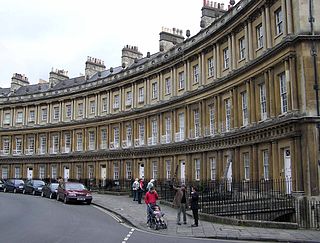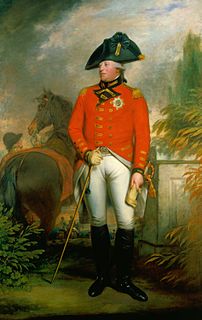 W
WThe Georgian era is a period in British history from 1714 to c. 1830–37, named after the Hanoverian kings George I, George II, George III and George IV. The sub-period that is the Regency era is defined by the regency of George IV as Prince of Wales during the illness of his father George III. The definition of the Georgian era is often extended to include the relatively short reign of William IV, which ended with his death in 1837. The transition to the Victorian era was characterized in religion, social values, and the arts by a shift in tone away from rationalism and toward romanticism and mysticism.
 W
WAlmack's was the name of a number of establishments and social clubs in London between the 18th and 20th centuries. Two of the social clubs would go on to fame as Brooks's and Boodle's. Almack's most famous establishment was based in assembly rooms on King Street, St James's, and was one of a limited number of upper class mixed-sex public social venues in the British capital in an era when the most important venues for the hectic social season were the grand houses of the aristocracy. The site of the club, Almack's Assembly Rooms or Willis's Rooms, has become retrospectively interchangeable with the club, though for much of the club's lifetime, the rooms offered a variety of other entertainments with no connection to the club.
 W
WThe "Bloody Code" was the system of crimes in England in the 17th and early 19th centuries. It was not referred to as such in its own time, but the name was given later owing to the sharply increased number of people given the death penalty, even for crimes considered minor or misdemeanor by 21st century standards.
 W
WEnglish society comprises the group behaviour of the English people, and of collective social interactions, organisation and political attitudes in England. The social history of England evidences many social and societal changes over the history of England, from Anglo-Saxon England to the contemporary forces upon the Western world. These major social changes have both internally and in its relationship with other nations. The themes of social history include demographic history, labour history and the working class, women's history, family, the history of education in England, rural and agricultural history, urban history and industrialisation.
 W
WGeorgian society in Jane Austen's novels is the ever-present background of her work, the world in which all her characters are set. Entirely situated during the reign of George III, the novels of Jane Austen describe their everyday lives, their joys, and sorrows, as well as their loves, and provide in the process an irreplaceable insight into the period.
 W
WWilliam Schaw Lindsay was a British merchant and shipowner who was the Liberal Member of Parliament for Tynemouth and North Shields from 1854 to 1859 and for Sunderland from 1859 until his resignation on grounds of ill-health in 1864.
 W
WWindow tax was a property tax based on the number of windows in a house. It was a significant social, cultural, and architectural force in England, France, and Ireland during the 18th and 19th centuries. To avoid the tax some houses from the period can be seen to have bricked-up window-spaces. In England and Wales it was introduced in 1696 and was repealed 155 years later, in 1851. In France it was established in 1798 and was repealed in 1926. Scotland had window tax from 1748 until 1798.